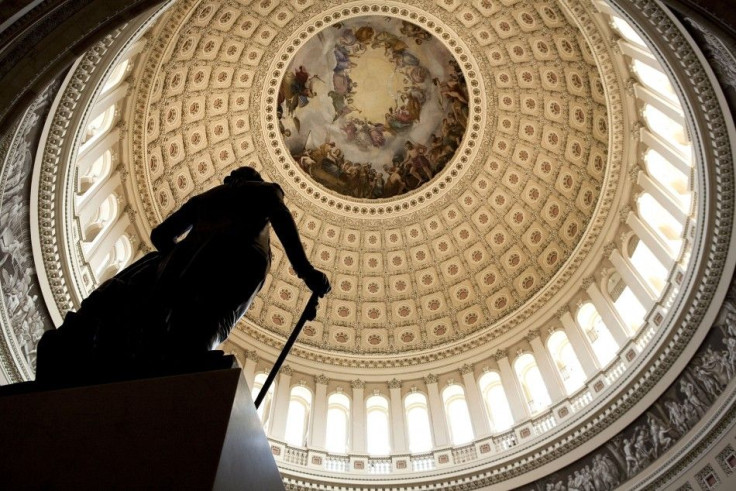Super Committee: Government Access Groups Rally for Transparency

The Congressional super committee has been less transparent than Casper the Friendly Ghost, according to several good government organizations staging Halloween rallies to call for more openness as the dozen-member group decides how to tighten the budget by at least $1.2 trillion.
They've basically chosen each other over the public, to circle the wagons, said John Wonderlich, Policy Director for the Sunlight Foundation, a good government group that has led the charge in organizing the rallies.
The Foundation has scheduled gatherings outside of several super committee members' district offices around the country, asking local residents to voice their concerns over what has been a clandestine process up until now.
Super Committee: Tight-Lipped Bunch
Wonderlich said initial hopes for an open process were high, as members of both parties promised to keep doors open as the committee's members we chosen. There was also talk of foregoing fundraising he added.
But in the time since, the super committee members have become a tight-lipped bunch, while various reports show a growth in lobbying and campaign donations from various special interests that could be affected by the super committee's proposal.
But the growth in up for grabs, government programs has also led to an influx of broader support for transparency beyond good government organizations. The possible loss of government funding makes for strange bedfellows, according to Wonderlich.
Since before the Budget Control Act passed, we've been calling for [the committee] to be more open, Wonderlich said. As soon as we started calling for that, other groups joined in.
Left- and right-of-center interests have banded together under the good government groups' initial call. Now farmers' groups and those possibly affected by Medicare and Social Security cuts -- groups that do not always shout in unison -- have joined in calling for more transparency.
An Upside to Secrecy
The super committee has been a tight drum since it began its work. It has held only three public hearings and at least eight private ones, as well as several in-party huddles to discuss substance.
The secrecy allows the members leeway to explore all options outside of political pressure, according to committee member U.S. Sen. Rob Portman, R-Ohio.
The reality is in order to make some of these tough, sensitive decisions, you've got to have the ability to have confidential, candid conversations, he said. The progress we've made has been because people are willing to try out ideas and say things privately that they would have a very difficult time doing publicly.
U.S. Sen. Max Baucus, D-Mont., promised only deliberations would be behind closed doors, but final decisions will be made in the open.
We're really going to keep all of this to ourselves. Once a proposal gets up to the public domain, interest groups will jump all over it -- it makes things difficult, he said.
Scant Leaks: What Do They Mean?
The committee's congressional members have been tight-lipped about their discussions -- last week being a lone exception that saw two leaks, one from each party, showcasing a $3 trillion dollar proposal brought forth by Democrats, and a $2.2 trillion counter offered by Republicans.
The leaks, according to Wonderlich, may indicate the politicization of the committee.
When they were leaking their plans last week, both sides were trying to claim the high ground, he said. It is the height of hypocrisy to say there needs to be secrecy so tough choices can be made then turn around and leak their efforts.
The Sunlight Foundation hopes the super committee will at least post its determinations 72 hours before it is brought before a vote to Congress, to allow a full airing of the proposal by the press and public. But Wonderlich lacks any high expectations.
Given the attitude they've had toward public disclosure, I wouldn't be surprised if they don't give us an early look for that long, he said.
The super committee's next public hearing is scheduled for Tuesday, as members of previous deficit committees will offer testimony.
The super committee was established as part of a deficit reduction deal, the Budget Control Act, in exchange for raising the nation's debt ceiling on Aug. 2. While the government was allowed to borrow up to $2.4 trillion more through 2013, the super committee was charged with reaching a bipartisan consensus on $1.2 trillion in deficit reduction over the next decade, in addition to the roughly $900 billion in deficit reduction Congressional Republicans and President Barack Obama agreed to as part of the August debt deal. Congress then has until Dec. 23 to pass the recommendations, otherwise trigger cuts, in the form of slashes to defense spending and Medicare benefits, would be automatically enacted.
© Copyright IBTimes 2024. All rights reserved.





















